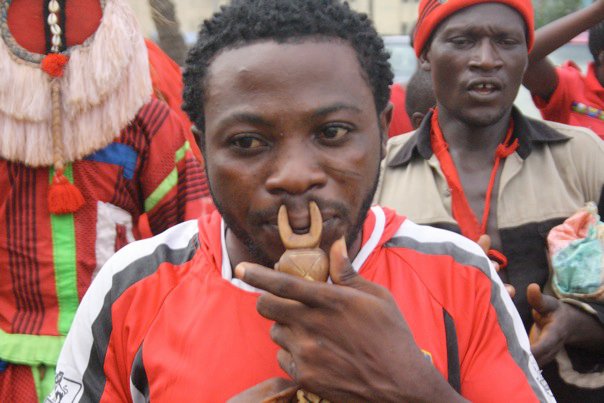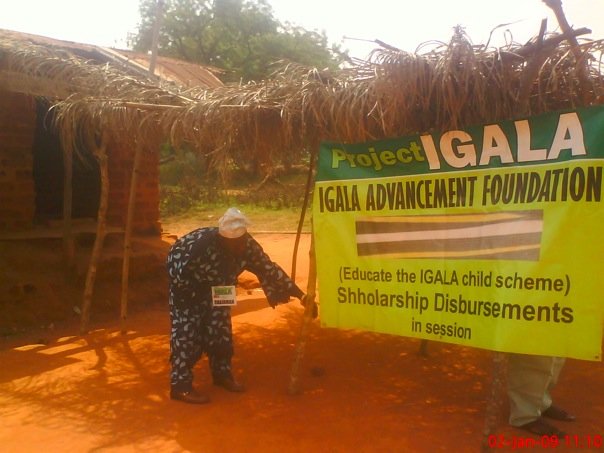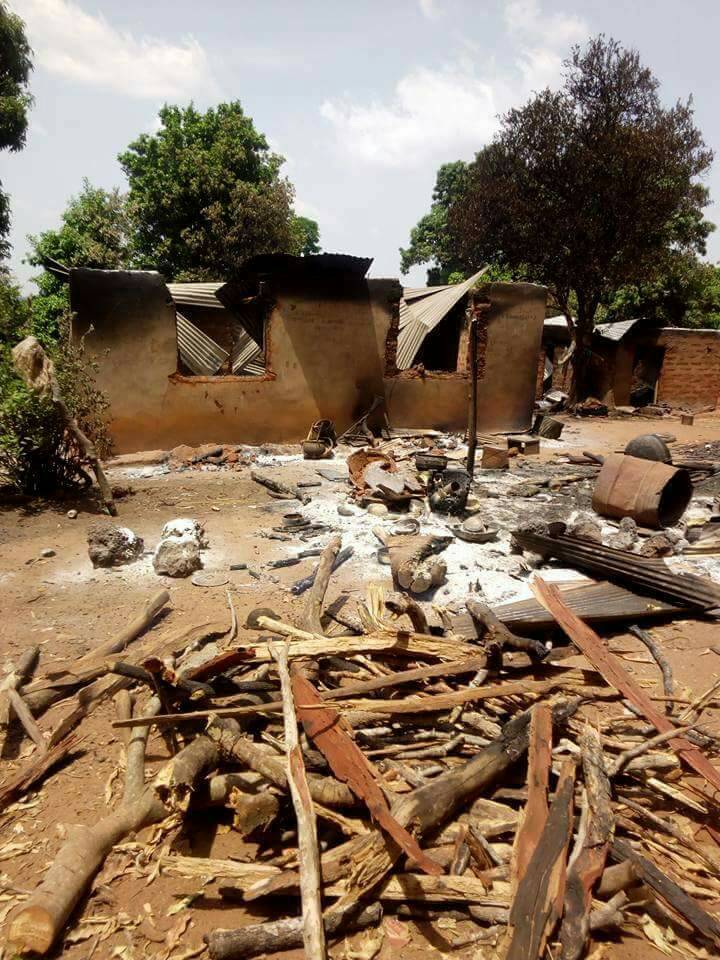
By Atayi Babs
Igala land has come a long way.
From the pre-historic times to date, the story of the ethnic group has been that of transitions – a story replete with mutations and transitions from one era to the other.
Today, the land has come full cycle, experiencing what can best be described as a period of strange times.
Everything around us now reeks the unfamiliar. From food insecurity to dangerous index of poverty; from communal lovelessness to unprecedented levels of criminality; and from socio-economic dislocation to political destabilization. Indeed, we have come full cycle!
Stating the obvious in unmistakable terms, Igala land today has become a perfect picture of a failed nation with neglect, poverty, despondency, kidnapping and illiteracy as totemic icons of fluctuating existentialism. Existence in Igala land today exemplifies the Hobbesian state where life is solitary, poor, nasty, brutish and short.
I must make bold to state here that Igala land is no stranger to strange times as we have gone through stranger-than-fiction experiences in our rich history. However, the strangeness of the times we live in presently calls for deep reflection, retracing of steps and re-strategising if we hope to come out of this present wilderness stronger than before.
An aspect of the strangeness of the times we live in that is of immediate concern to me is our seeming loss of expression. It is increasingly becoming clear that as a people, we are fast losing our power of expression. Expression here includes the art of making one’s thoughts or feelings to be known and the deployment of language to convey thoughts and meaning. From the young to the old, powerful expressions on what Igala wants, where Igala should be, and how Igala should be positioned have become scarce commodities in our clime.
It is believed once a man’s sickness gets to the point that he can no longer express himself, the end thereof is near. In ancient warfare, expressions played influential roles in swinging the course of victory. The bible makes us to understand that David and Goliath engaged in a verbal warfare before the fight and the statements uttered by both parties went a long way in determining where the pendulum swung at the end of the day.
Even in modern warfare, I’m being reminded that powerful expressions are keys to victory on the battle front hence soldiers encourage and motivate themselves to the warfront with powerful and heart-thumping songs and expressions that make the enemy’s heart to sink. The ongoing brickbats between US’ Donald Trump and North Korea’s Kim Jong Un is likened to the verbal war before the real war.
Coming to today’s strange Igala land, there is an amazing dearth of expression with the worst form manifesting itself in the gradual disconnect with our mother tongue – Igala language. An amazing percentage of today’s generation of igalas can barely express themselves in pure and unadulterated form of the Igala language. Across Igala land today, a normal conversation on the state of Igala or the way forward for Igala cannot be completed without an injection of several English words. In several Igala-centric social media groups, attempts by a few to encourage the posting and writing of Igala language have been met with stiff resistance and opposition on the grounds that many who can’t read or write in Igala will be excommunicated. You may blame westernisation and globalisation for that line of reasoning but the situation becomes even worse when one considers our prowess in English language.
A cursory look at social media platforms and posts across Nigeria today reveals an embarrassing state of linguistic aridity on the part of igalas. In the absence of sound expressive power, we deploy and hurl insults at each other and at anyone who dares to challenge our worldview on Facebook and WhatsApp. Igalas have become the butt of silly jokes on the account of their inability to properly and correctly express themselves in correct English language. Any wonder why our space remains gaping in the nation’s mainstream media?
Beyond grammatical correctness and semantic fluidity, this piece isn’t about the denigration of one’s people as the issue of increasing departure from the rigours of language applies nearly to all ethnic groups in Nigeria but more about the urgent need for us as a people to begin to express ourselves, our hopes, our culture, our position and our future in very pure, unmistakable and blameless language (be it in Igala or English language). The role of language in galvanising actions capable yanking a people off strange, debilitating times can never be over-emphasised.
Even Émile Benveniste, the French structural linguist and semiotician in one of his writings on categories of thought and language said “le langage reproduit le monde, mais en le soumettant à son organisation propre.” (language organizes the world but by submitting to its own organisation). Language, when organised, carries the prospects of reproducing and recreating our world from the present malaise of strangeness and absurdity but we must first of all get our expressions right.
In the talkative democracies of ancient Greece, oratory or expression, was naturally an important branch of education. Not only was it their most efficient method of communicating thoughts, it was, as Benjamin Disreali pointed out, “a substitute for printing, and an essential to a political career.” On the whole, they paid a great deal of attention to expressions as we perhaps tend to pay too little.
Ancient oratory/expression differed a good deal from the modern. In the absence of penalties for slander, personal abuse and virulent invectives were irregular. In default of good evidence, argument from probability and the personality of the speaker had excessive weight. Elaborate rules were compiled for the construction of sentences and for the arrangements of speeches, and very different styles were demanded in the law courts and electioneering grounds.
Traces of the influence of oratory are observable in the speeches of Thucydides, especially in the extract from Cleon’s cynical defense of the savage decree against Mitylene. Socrates himself, because of ingenuity in argument and speeches, was regarded by many of his contemporaries as the worst kind of “Sophist,” though his life was one long search for truth. The political speeches of Demosthenes perhaps best fulfill the three conditions laid down by Auguste Charles Sainte-Beuve, the irrepressible French critic as necessities for eloquence – “an adequate theme, a sincere and impassioned mind and a power of sustainment.” Brilliant in style, noble in theme, sincere in patriotism, Demosthenes’ speeches justified his preeminent reputation in antiquity, leading to a remark by Prof. Bowra that “this man knew how to persuade.”
Even Cicero, writing and speaking in republican times, was well-mannered and patriotic to the cause of the state. Yet he had all the qualities of a great orator, and in his De Oratore, affirmed that the perfect speaker whose thoughts are never far from himself must have many admirable things to draw from his own immense experience. He made for instance, an interesting distinction between mere fluency and true eloquence by positing that ‘any demagogue can command facility of speech, the really eloquent man must have intelligence and a background of education.’
Coming to the already charged and frenzied atmosphere in Kogi, one can confidently submit that the imperatives of expressive oratory in political speeches, releases and campaigns as highlighted above seem to be lost on the government’s current gladiators and critics. Hence it won’t be termed as hasty to conclude that the finesse and the allure of persuasion immersed in breathless, expressive oratory has taken a sudden, but premeditated flight from the shores of our land and state. This is evidenced in the way both critics and Kogi govt appointees strut around the state and country in sanctimonious arrogance, bestriding the socio-political firmament with their sartorial taste in cars and women while at the same paying no attention to expressions, thereby defacing public consciousness in the process. Time and space will not permit me to analyse the Governor’s speeches, press statements and the Head of Service’s latest outing on the Soje suicide scandal which all smacked of dilettantish outpourings.
From Anyigba to Ankpa, Idah to Ibaji, Odolu to Ogugu, Ugwalawo to Ukanukpoda, the messages are the same: hollow socio-political discourses, wedded to a language that reeks intolerance, arrogance, ignorance and brazen absence of an effective thought process. Aside incapacitating the public’s imagination with poor oratorical skills, which only help in evacuating meaning and aborting insight, these brothers and sisters of ours, with their unflattering nicknames also regale us with stale manna such as new direction, white lion, change the change, godly politician, true direction, enemuneme, etc.
In all these, they seem to fixate on the metaphor of propulsion, mistaking the image of motion with the idea of progress. They do not actually tell us how or where the want to move us forward to or where the direction is. Our recent history is replete with leaders who moved us forward into avoidable poverty, needless expenditure, insecurity, political thuggery, crises of stupendous proportions, and wanton destruction of cherished cultural ethos.
Perhaps our current gladiators should learn and improve on the experiences of our revered heroes past. Heroes such as Attah Ayegba Om’Idoko, Attah Ameh Oboni Dr. Steven Achema, James Ocholi, to mention just a few who by their endeavours employed powerful expressions and oratory as the science of persuasion to convey their noble thoughts and ideas on Igala development to our people who in turn supported them massively.
These men realized early in life that it is from the fusion of thought with passion, and by appealing both to emotion and to reason that the greatest of all speeches/writings achieve immortality. If these icons, through the instrumentality of their expressions/oratory, contributed in no small way to the development of Igala land in their time, what excuse do we have in this age of social media?
It is in this light that I welcome the decision by Project IGALA to establish a website that will amongst other things, raise the intellectual tone of Igala the society, cultivate the public mind, purify the Igala taste while supplying true principles to popular enthusiasm and fixed aims to popular aspirations as well as giving enlargement and sobriety to the ideals of Igala renaissance, thus facilitating the exercise of power in our land refining the intercourse of private life.
These have become imperatives we can no walk away from in these strange times and I promise to use the space provided by this column to do my bit accordingly.
See you next week!



Wolukolo…Igala maybe minority, This shouldn’t stop her from raising her head among other nations in the country..